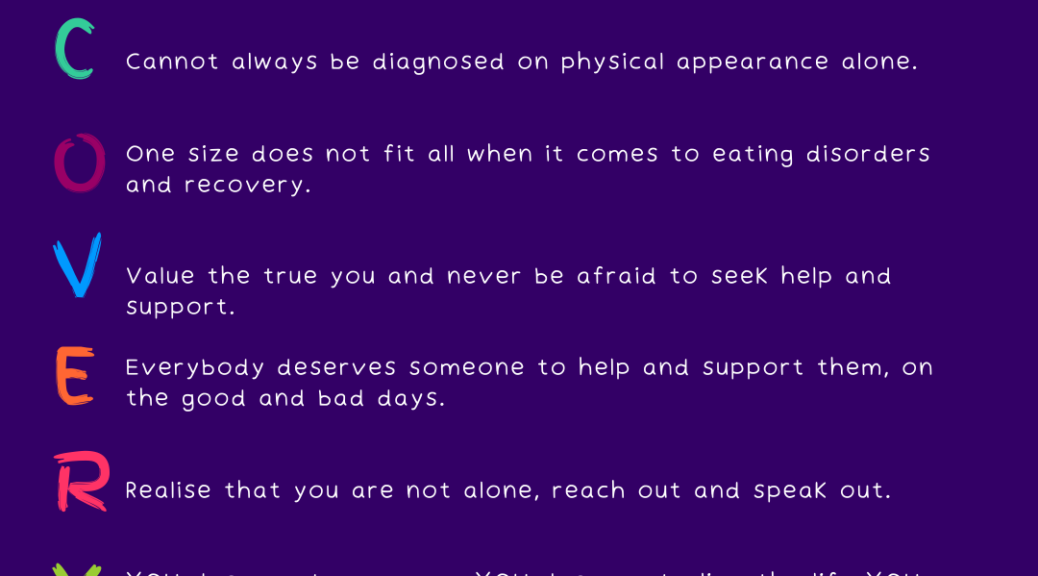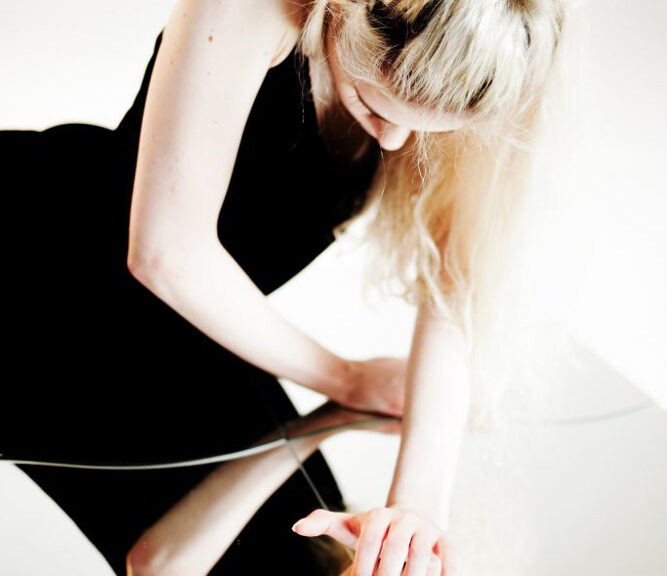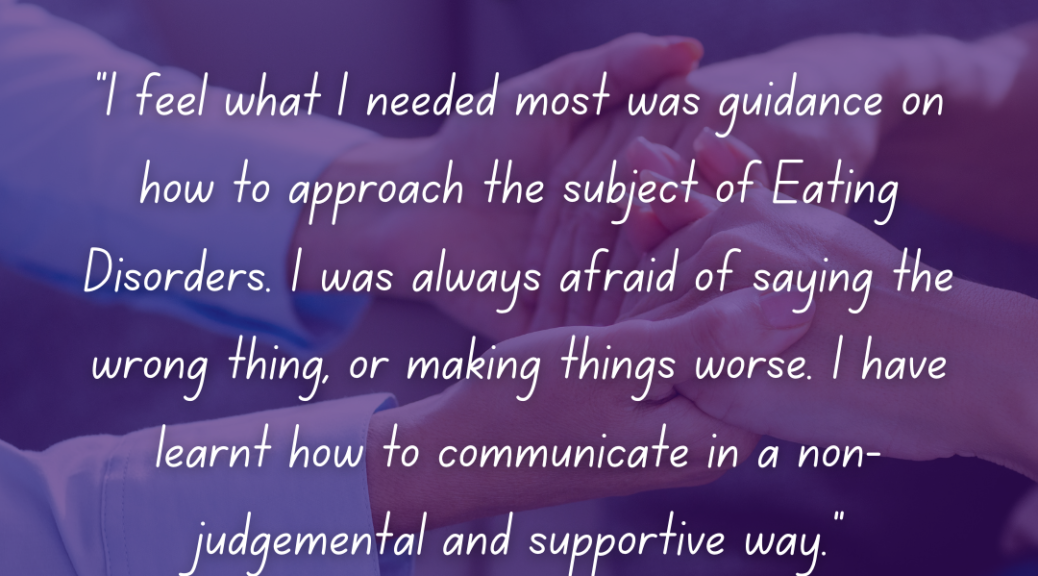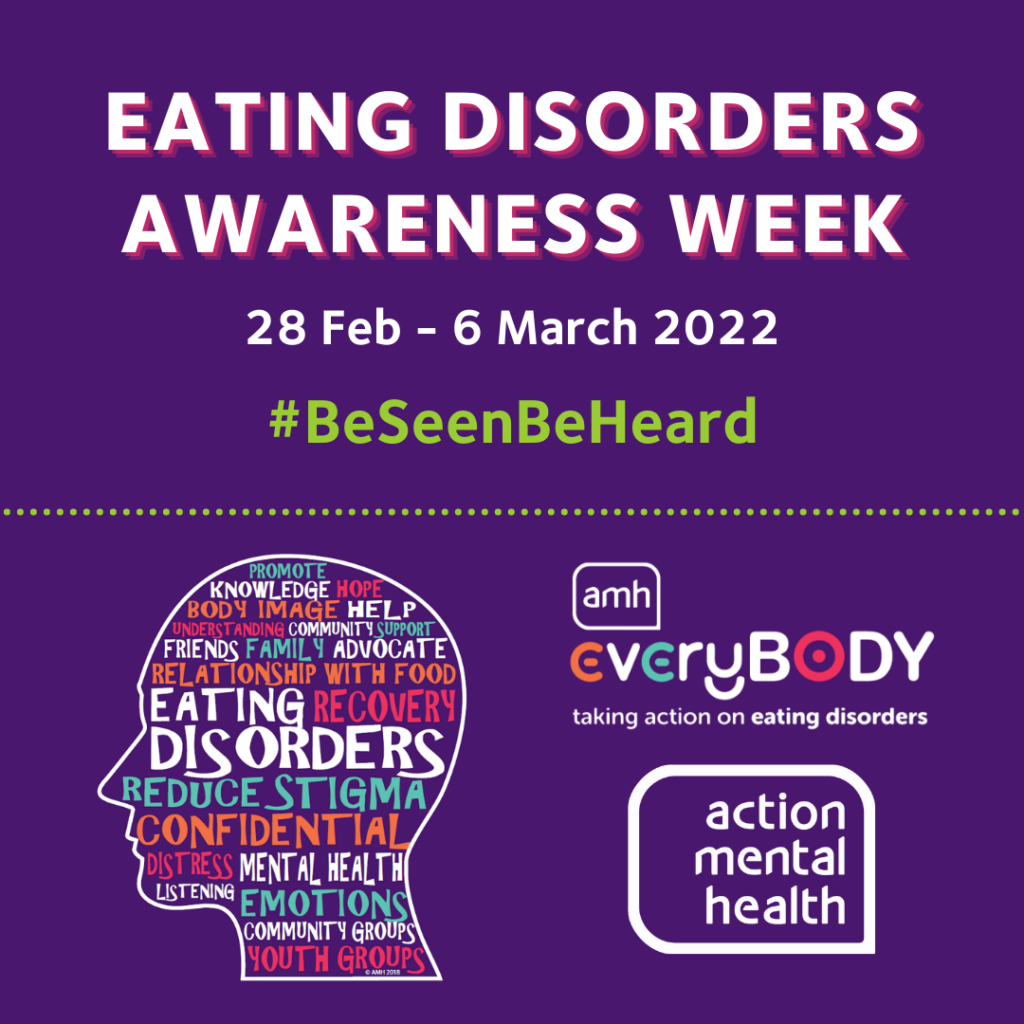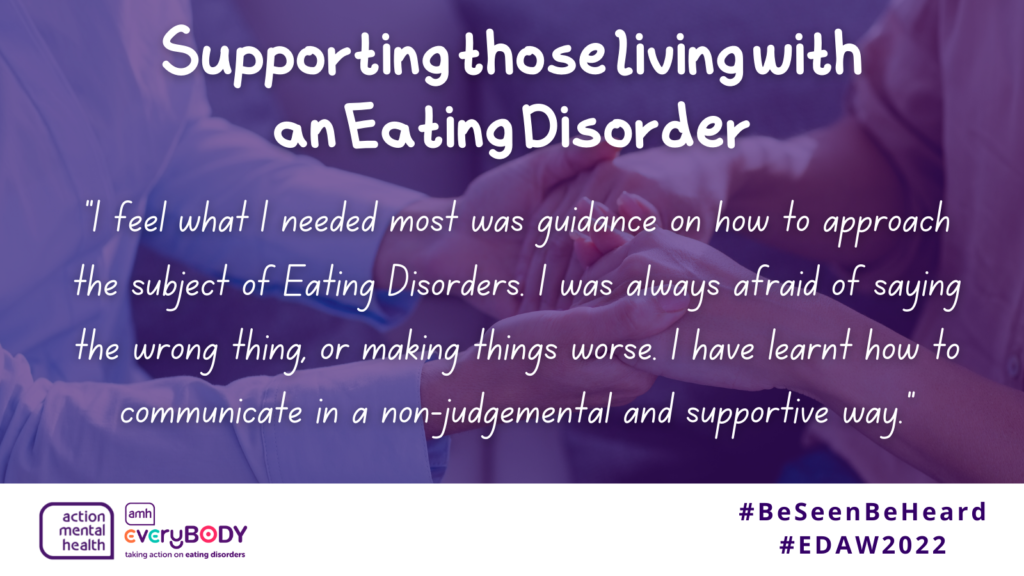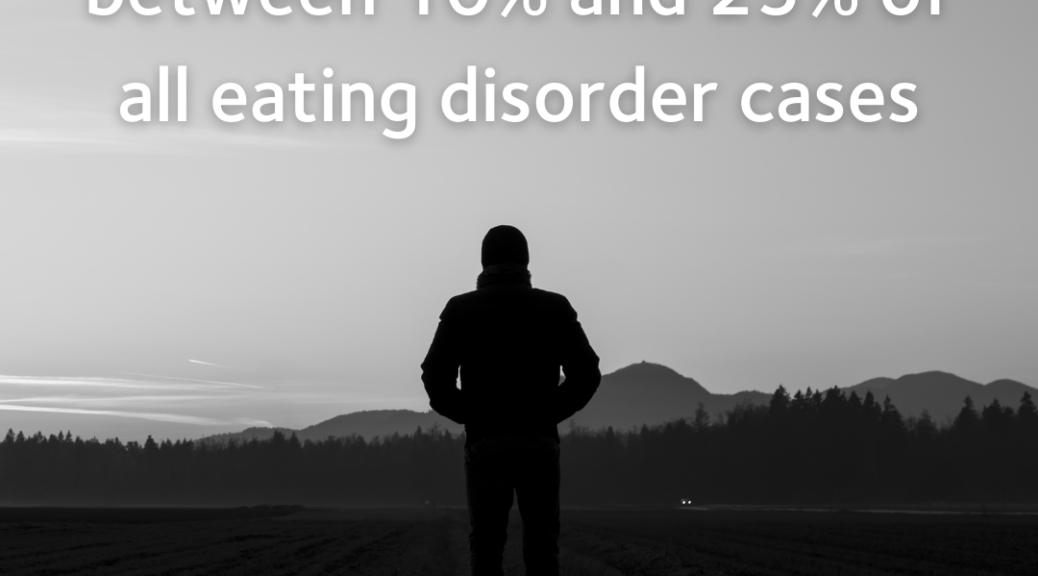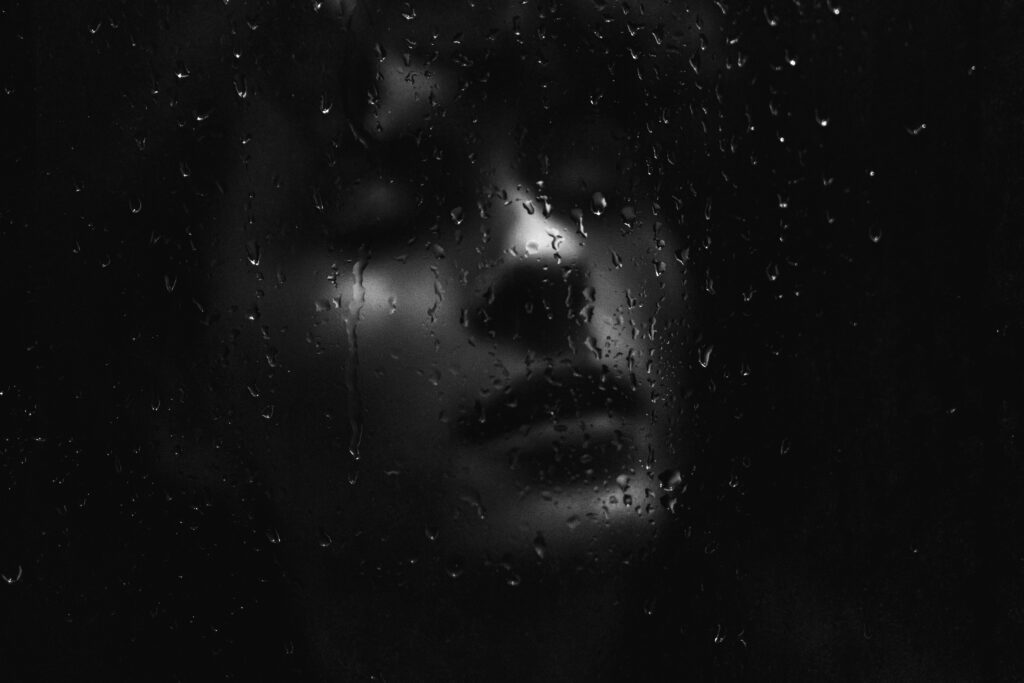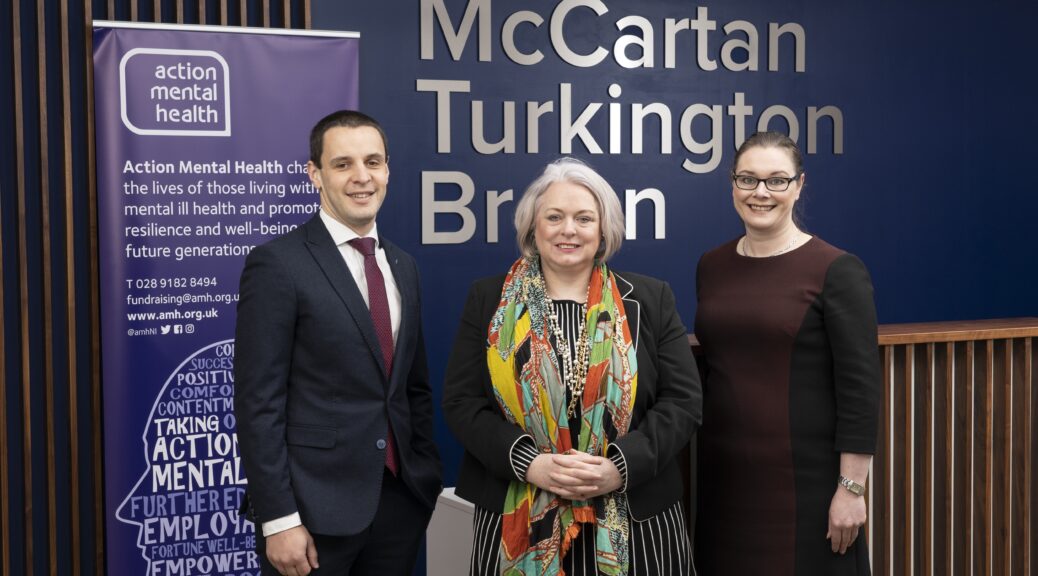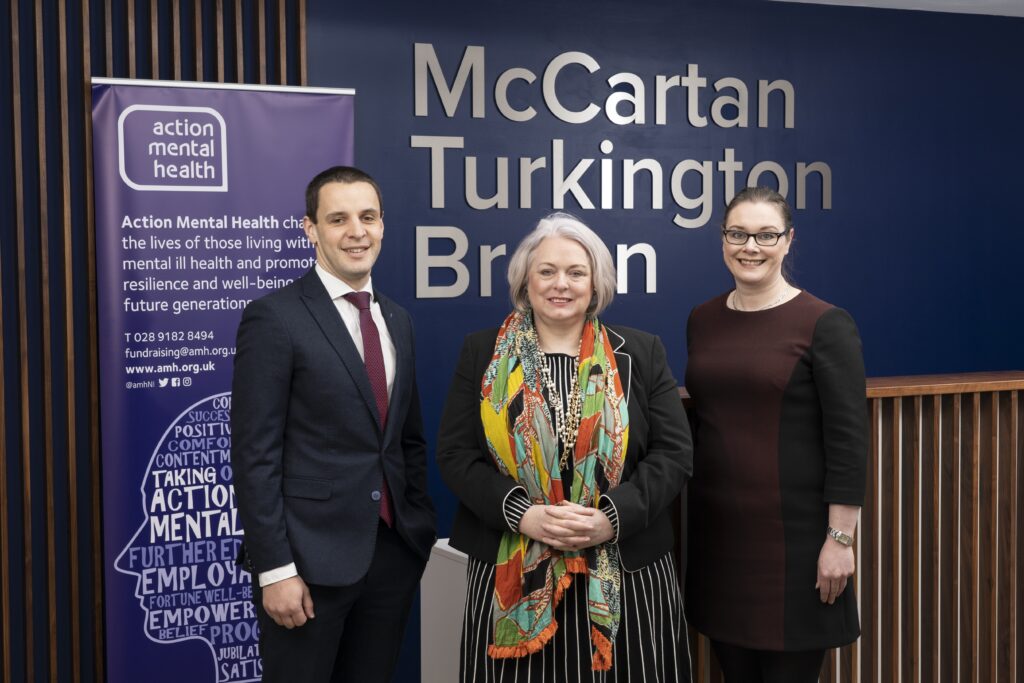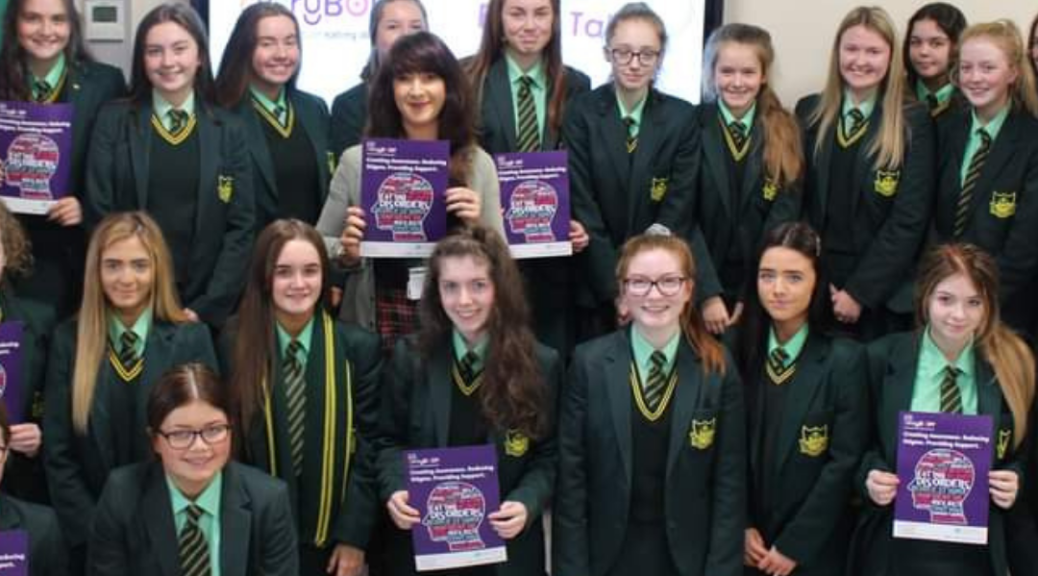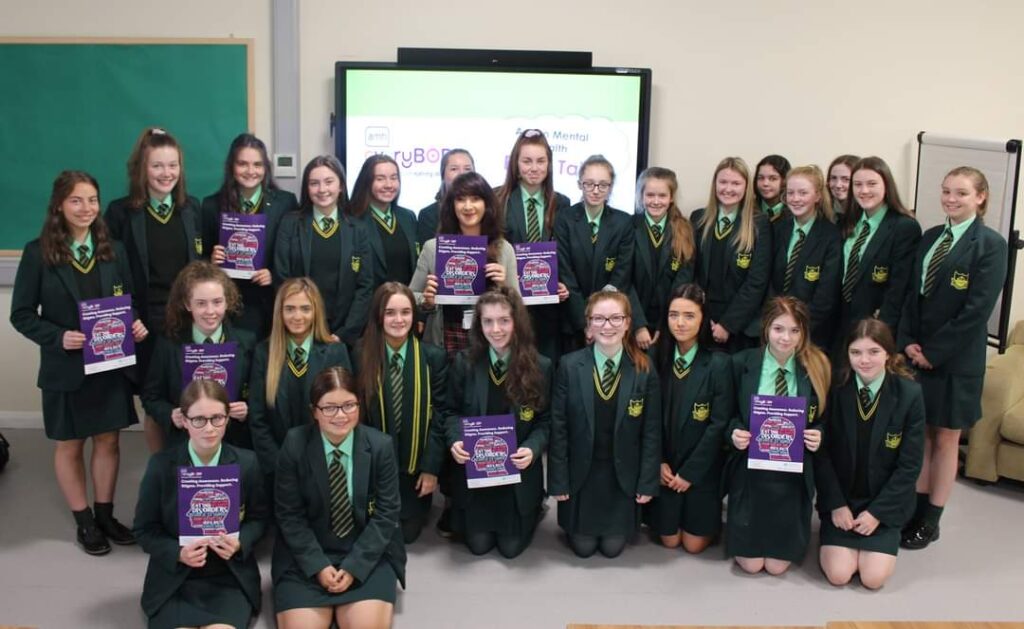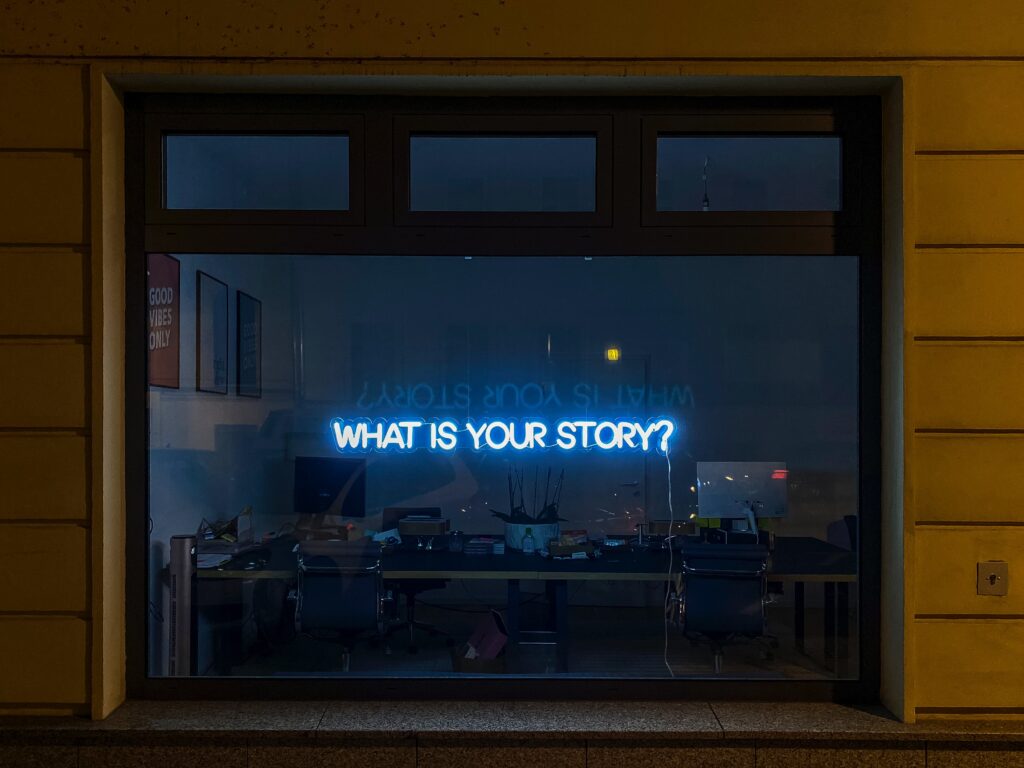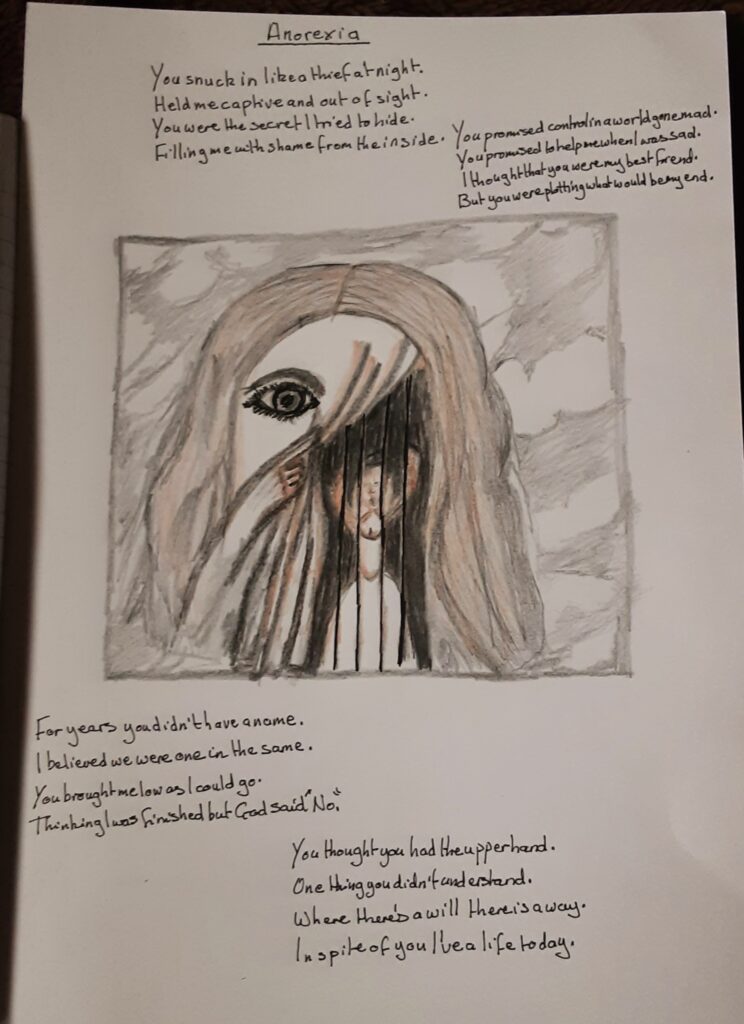Action Mental Health’s specialist eating disorder service, AMH everyBODY, is looking inward, aiming to steer attention to its clients’ voices – and their own personal experiences. To highlight Eating Disorder Awareness Week 2022, one of AMH everyBODY’s clients, shares their own thoughts on eating disorder recovery.
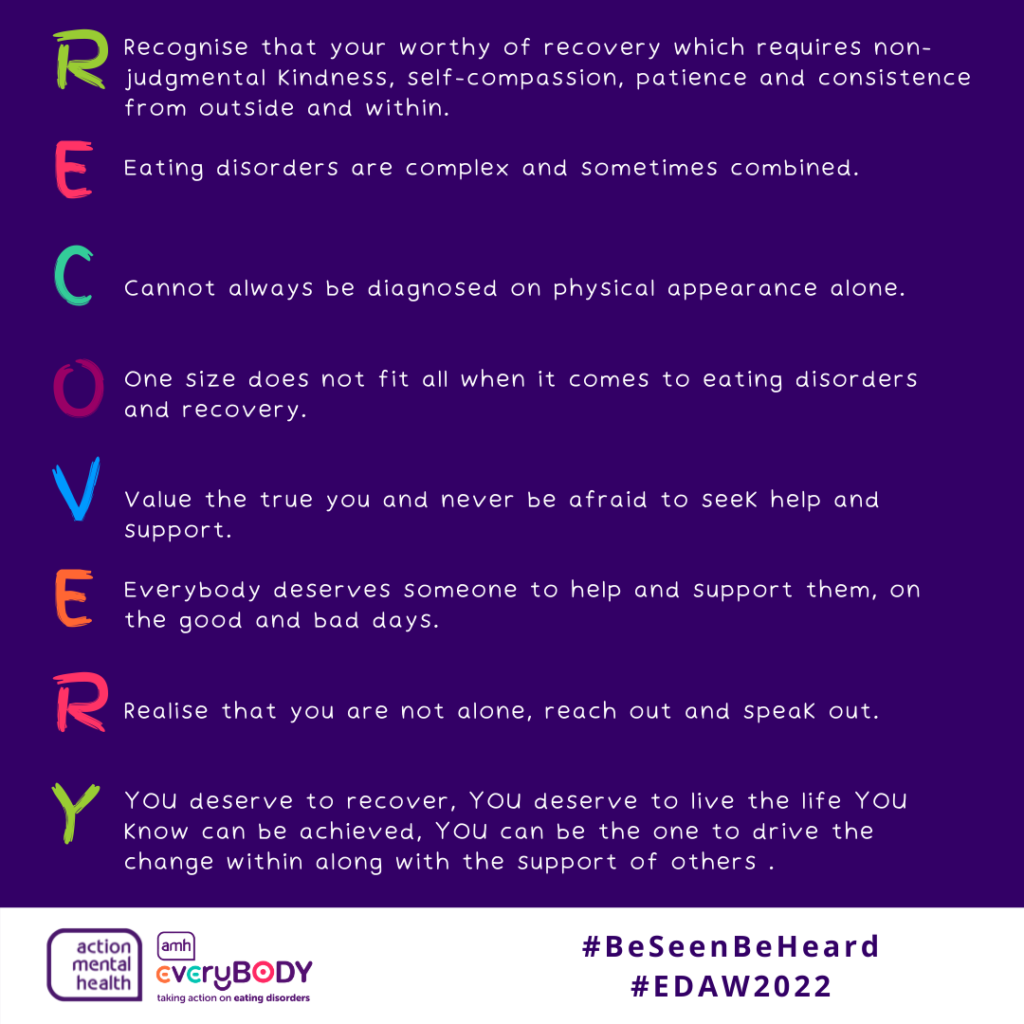
“I think the biggest misconceptions connected to eating disorders (ED) are that it is attention-seeking behaviours and that they can be diagnosed/recognised based on physical appearance alone. This downgrades the experiences of those living with ED.
My ED thoughts and behaviours started around 11 years of age. I first saw a professional in school when I was 12. It is now that I’m older (28) that I can observe the grip of those false dark thoughts and behaviours have significantly loosened. I remember reading or seeing things promoting speaking out when I was younger and thinking; no way could anyone understand any of this. I was so controlled by the thoughts inside my head. It wasn’t easy starting to let go of something that has lived with me for so long.
But trust me, there are people out there that want to, will and can help. Maybe we don’t exactly need someone to understand per sae, but when things are verbalised they become less intrusive and talking becomes a stepping stone to freedom. There are people out there who are equipped to help us recognise and reframe our ED thoughts, feelings and behaviours. We deserve to be empowered and to make that empowerment much stronger than the voices in our heads.
To me recovery means the road to becoming free from the internal dialogue that lives inside. We cannot do this alone; it is easier when we are provided with a toolkit for dealing with and overcoming ED. Realise that we deserve to be free and we are worthy of help and support. It is remembering, no matter how long it may take if we continue to fight we can start to release the control ED has over us. We can start to realise that it is not us, we become observant rather than obsessed.”
“ED can erode relationships with ourselves and others. The internal dialogues that come from ED will tell you are ok the way you are, but seeking help can help release us from that headspace that traps us. This ED brain may convince you that you don’t need help from the outside and/or you can survive without support. Yes, we are all individual but we need to move away from that internal individualistic dialogue and mindset that ED creates. Seeking external support can enhance internal wellbeing. Sometimes it feels impossible or too scary to reach out but as long as the fight continues, talking and seeking help can make a huge difference in how you see and experience all that comes with living with ED.
If we can bring ourselves to view thoughts and behaviours as a product of the ED brain and not our rational brain, this can provide a more true and rational understanding of what is going on. The ED brain can be toxic and fill us with contempt and crippling false narratives. We do not like the thoughts and behaviours it produces, especially when they are left to ruminate and can become trapped and spark off other negative thoughts. They can erode the real YOU.
When stuff gets trapped inside our heads, it feels so true but having someone to verbalise things to without judgement can help rationalise how true they really are. Openness is key. Recovery is a struggle but it is worth it. It is nothing compared to the struggle we go through when we live with ED alone.“




